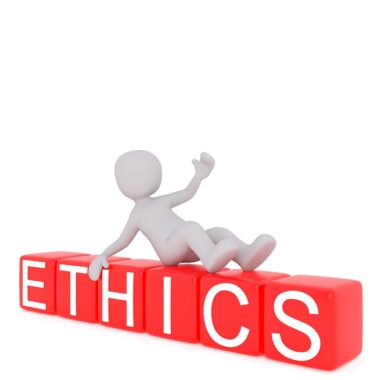Ethical Standards and Competitive Advantage in Global Markets
As businesses expand globally, they face various ethical challenges that can significantly impact their operations and reputation. Different cultures and legal systems present obstacles that necessitate careful navigation. Adhering to ethical standards not only enhances a firm’s reputation but can lead to a competitive advantage. Companies that prioritize ethical conduct tend to build stronger relationships with stakeholders, including customers, employees, and governments. In an increasingly interconnected world, ethical practices can differentiate a company from competitors that may lack similar values. The perception of a business as socially responsible often attracts consumers who align with those values. Additionally, businesses must consider how their supply chains reflect their ethical commitments. Every link in the chain poses potential ethical dilemmas that must be addressed to maintain integrity. Companies that openly communicate about their ethical policies foster trust and loyalty. As a result, investing in ethical standards is not merely about compliance but cultivating a culture that resonates with the global marketplace. Firms that embrace these principles are often rewarded through enhanced performance and sustainability over time, reinforcing a positive reputation within their industry. Sustainability relates closely to the competitive landscape for modern enterprises.
Furthermore, global businesses increasingly recognize that ethical standards vary dramatically between regions. What is acceptable in one country may be seen as unethical in another. This disparity poses unique challenges for multinational enterprises operating in diverse markets. Companies must create adaptable ethical frameworks that respect local cultures while maintaining core values. Balancing local customs with global standards can enhance a company’s reputation. An ethical business is perceived more favorably, leading to increased customer loyalty and market share. This is particularly true in developing countries, where ethical practices are often viewed as a commitment to improving local communities. To achieve this, businesses should invest in training programs that educate employees on ethical issues relevant to their operations. By creating awareness around local customs and legal requirements, companies can better navigate ethical dilemmas. Additionally, establishing clear reporting channels for unethical behavior empowers employees at all levels. This approach minimizes risks associated with ethical lapses, ensuring a coherent corporate identity. When stakeholders trust that a business acts ethically, it strengthens their long-term commitment, providing a solid foundation for future endeavors within the global market.
Impact of Corporate Social Responsibility (CSR)
The concept of Corporate Social Responsibility (CSR) is integral to understanding business ethics in international contexts. CSR represents a commitment to ethical behavior that extends beyond compliance and profit maximization. Businesses actively engaging in CSR initiatives contribute positively to society and enhance their competitive stance. According to research, firms recognized for their CSR efforts often outperform their competitors in terms of financial success. This correlation is particularly relevant in industries sensitive to public perception, such as consumer products and services. Customers are increasingly inclined to support businesses that demonstrate social responsibility. Furthermore, CSR can improve employee morale, attracting top talent who seek employers committed to ethical practices. Companies should create frameworks that integrate CSR into their core business strategy, aligning social goals with operational objectives. Reports indicate that consumers tend to be more loyal to brands exhibiting genuine social contributions. Consequently, ethical practices become a key component of the brand identity, thus influencing purchasing decisions. Emphasizing CSR not only solidifies customer relationships but also builds a positive brand narrative. This shift towards ethical business approaches marks a promising trend in modern business culture on a global scale.
Importantly, stakeholder engagement plays a crucial role in implementing ethical standards successfully. Businesses must actively interact with various stakeholder groups to understand their expectations and concerns regarding ethical behavior. Engaging in dialogue creates transparency and trust, essential for navigating complex ethical landscapes. Stakeholders, including customers, suppliers, and local communities, can provide insights that help identify potential ethical challenges. A proactive approach in stakeholder relations enhances the company’s ability to anticipate and mitigate risks associated with unethical practices. Moreover, customers today are well-informed and demand accountability from the companies they support. Therefore, businesses need to be open about their operations, sourcing, and manufacturing practices. Implementing regular assessments of ethical performance informs necessary adjustments to stay aligned with stakeholder expectations. Conducting surveys and engaging platforms such as social media can facilitate ongoing communication. By doing so, businesses not only comply with ethical standards but also strengthen community ties. Positive stakeholder relationships contribute to long-term business sustainability, fostering a culture of shared values that resonates with broader societal goals. Ultimately, a robust stakeholder engagement strategy will ensure ethical standards remain a priority in all business operations.
The Role of Ethical Leadership
Ethical leadership is essential for fostering an environment where ethical standards thrive. Leaders play a pivotal role in modeling and reinforcing ethical behavior within their organizations. By embodying ethical principles, leaders set the tone for their teams and influence corporate culture. Organizations often mirror the actions and values of their leadership, making it crucial to have leaders committed to high ethical standards. Ethical leaders actively promote discussions surrounding ethical dilemmas, encouraging employees to seek guidance when faced with challenges. Also, organizations should recognize and reward ethical behavior among employees. This strengthens the overall commitment to ethical standards within the team and positions the company favorably in the public eye. Providing platforms for ethical training and development can empower employees to navigate difficult situations confidently. Furthermore, leaders must hold themselves accountable, demonstrating that ethical standards apply equally to all levels of the organization. By prioritizing ethical leadership, companies can effectively manage and reinforce their reputation within competitive markets. This approach is increasingly relevant in a world where consumers prioritize ethics alongside quality and price; it fosters a culture where ethical behavior becomes integral to business operations.
While achieving competitive advantage through ethical practices is increasingly recognized, the journey is not without obstacles. Global businesses often face varying regulations and ethical interpretations, leading to complex decision-making scenarios. In particular, navigating the legal landscape of multiple countries poses significant challenges. Companies must invest in resources to ensure compliance with local laws and ethical guidelines, balancing these with overarching corporate values. The risk of ethical breaches can become heightened when businesses operate across borders. Cultivating partnerships with local experts helps organizations navigate these complexities while maintaining ethical standards. Additionally, addressing ethical challenges promptly is crucial to mitigating adverse impacts on reputation and operations. Establishing clear policies and procedures can guide businesses through these challenging situations. Furthermore, proactive communication with stakeholders fosters a collaborative approach toward ethical challenges. Being transparent about difficulties and solutions can enhance trust in the brand. Companies willing to confront and address these challenges head-on often emerge more resilient and better equipped to adapt. As a result, ethical considerations become a differentiating factor in achieving sustainable success while navigating competitive and diverse international landscapes.
Conclusion: The Way Forward
In conclusion, ethical standards are integral to gaining a competitive advantage in global markets. Businesses willing to prioritize ethical practices are positioning themselves for sustainable success. By embracing ethical frameworks, organizations can enhance their reputations and cultivate loyalty among consumers and stakeholders alike. Moreover, the implementation of CSR, ethical leadership, and stakeholder engagement create a comprehensive strategy that reinforces ethical commitments throughout the organization. To truly thrive globally, corporations must recognize the significance of cultural nuances while promoting a unified ethical standard. The journey towards ethical excellence requires ongoing investment in training, transparency, and open communication. As consumers increasingly demand accountability, businesses that demonstrate ethical conduct will stand out in competitive markets. Adaptive strategies that integrate ethics into core operations will ensure a brand’s resilience and long-term viability. Consequently, embracing ethical standards equips businesses to navigate complexities while fulfilling their social responsibilities. Looking ahead, companies that view ethics as a strategic advantage are more likely to emerge as industry leaders. By fostering a culture of ethical behavior, businesses can continue to succeed in increasingly competitive and culturally diverse markets, paving the way for a more responsible and equitable global economy.





